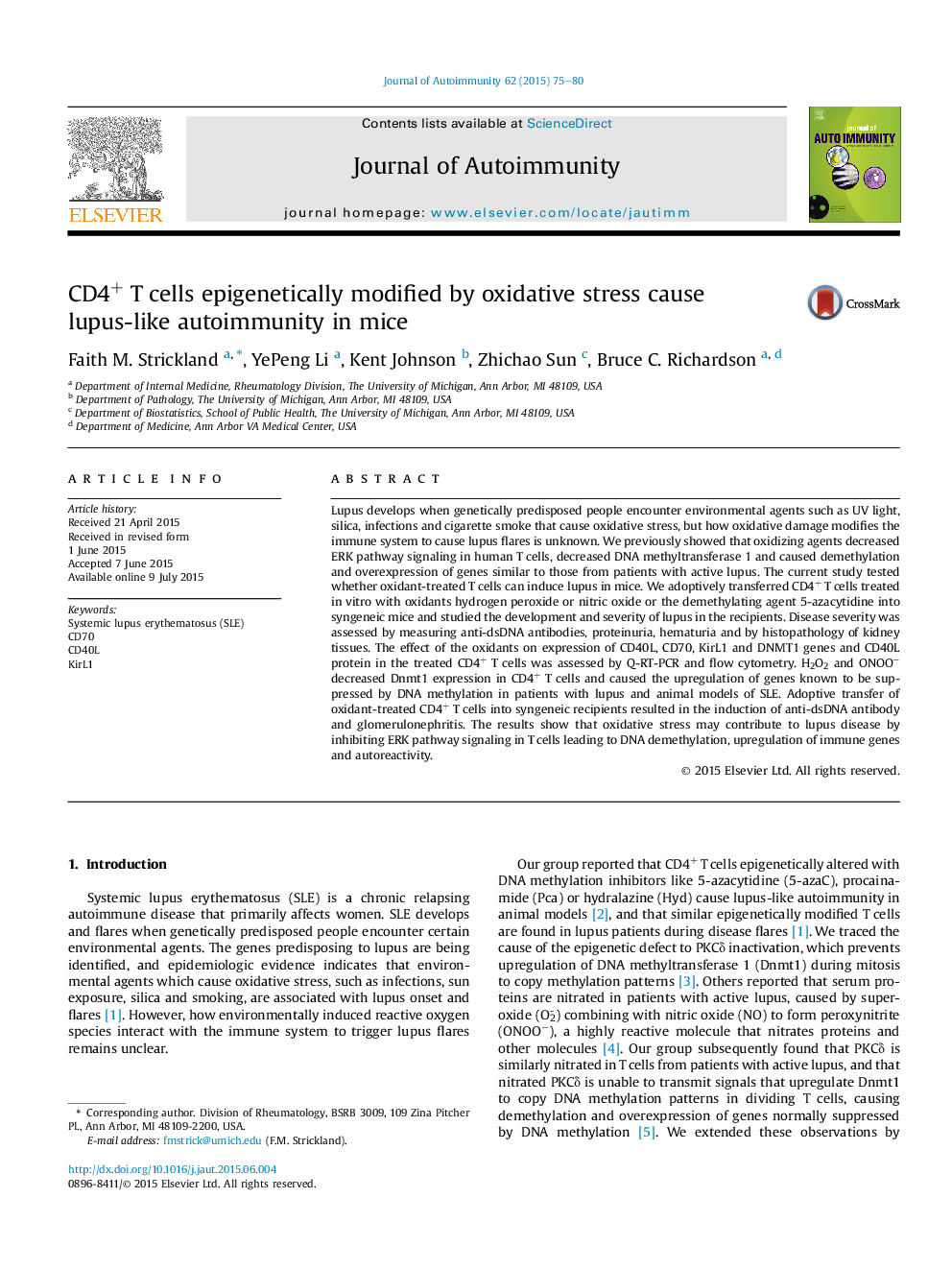| کد مقاله | کد نشریه | سال انتشار | مقاله انگلیسی | نسخه تمام متن |
|---|---|---|---|---|
| 3367687 | 1592287 | 2015 | 6 صفحه PDF | دانلود رایگان |

• The current study tested whether oxidant-treated T cells can induce lupus in mice.
• In vitro treatment of CD4+ T cells with H2O2 or ONOO− decreased ERK signaling and Dnmt1 expression in these cells.
• Oxidant treatment also upregulated genes known to be suppressed by DNA methylation in SLE patients and animal models of SLE.
• Adoptive transfer of oxidant-treated CD4+ T cells into syngeneic mice caused anti-dsDNA antibody and glomerulonephritis.
• Oxidative stress may contribute to SLE by reducing ERK signaling & DNA methylation, activating immune genes & autoreactivity.
Lupus develops when genetically predisposed people encounter environmental agents such as UV light, silica, infections and cigarette smoke that cause oxidative stress, but how oxidative damage modifies the immune system to cause lupus flares is unknown. We previously showed that oxidizing agents decreased ERK pathway signaling in human T cells, decreased DNA methyltransferase 1 and caused demethylation and overexpression of genes similar to those from patients with active lupus. The current study tested whether oxidant-treated T cells can induce lupus in mice. We adoptively transferred CD4+ T cells treated in vitro with oxidants hydrogen peroxide or nitric oxide or the demethylating agent 5-azacytidine into syngeneic mice and studied the development and severity of lupus in the recipients. Disease severity was assessed by measuring anti-dsDNA antibodies, proteinuria, hematuria and by histopathology of kidney tissues. The effect of the oxidants on expression of CD40L, CD70, KirL1 and DNMT1 genes and CD40L protein in the treated CD4+ T cells was assessed by Q-RT-PCR and flow cytometry. H2O2 and ONOO− decreased Dnmt1 expression in CD4+ T cells and caused the upregulation of genes known to be suppressed by DNA methylation in patients with lupus and animal models of SLE. Adoptive transfer of oxidant-treated CD4+ T cells into syngeneic recipients resulted in the induction of anti-dsDNA antibody and glomerulonephritis. The results show that oxidative stress may contribute to lupus disease by inhibiting ERK pathway signaling in T cells leading to DNA demethylation, upregulation of immune genes and autoreactivity.
Journal: Journal of Autoimmunity - Volume 62, August 2015, Pages 75–80